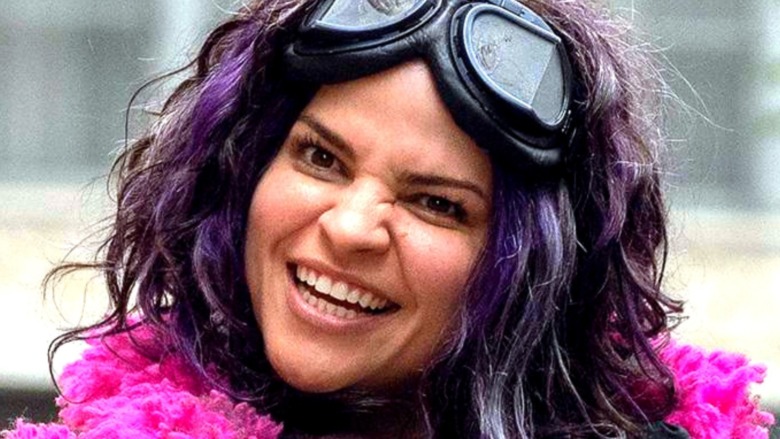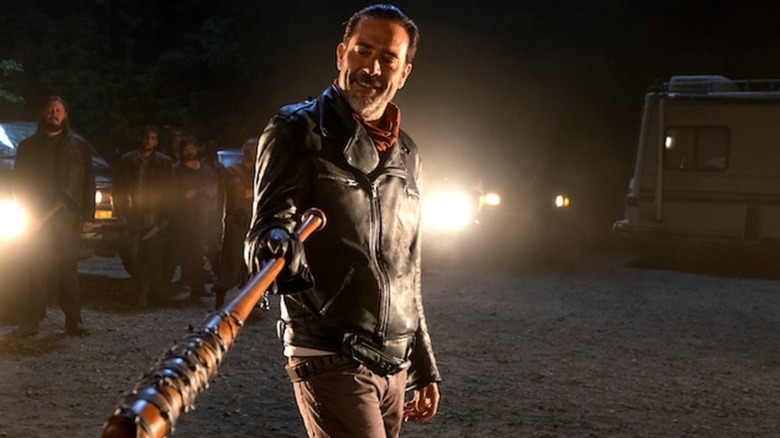The One Thing The Walking Dead Can Never Get Right
At the heart of "The Walking Dead" is an unparalleled storytelling ability. Sure, the walkers are the real enemies, or should be, but humans are capable of more harm than the undead could ever do. And not only can fellow humans turn out to be enemies, but there is a lot of complicated space between friend and enemy that is about as hard to navigate as a minefield. This dramatic tension is where "The Walking Dead" particularly excels.
In many ways, the show's character development shines in the extended Season 10. Unlike the typical "Walking Dead" episode, the six extra episodes are character-focused (sometimes on existing characters, other times on completely new ones) rather than covering multiple storylines at once. Hidden in these episodes are the narrative experimentation and character-focused execution that make "The Walking Dead" the gem it is — but here you'll also find one of its greatest flaws.
One of the new characters expanded upon in these episodes was born Juanita Sanchez and christened herself "Princess." When she joins Ezekiel, Eugene, and Yumiko, her well-meaning attempts to help them sometimes lead them through literal minefields. It's hard to tell whether she's a friend or foe, but she slowly proves herself — and when one of Season 10's extra episodes centers on her after she and the others are captured by the Commonwealth at the end of the original season, we hope that she may be the key we need to understanding these mysterious, highly organized, stormtrooper-like captors.
This "Walking Dead" crutch is a royal pain
Unfortunately, this is not the case. The aptly named episode "Splinter" takes Princess almost to the point of escape and rescuing the others ... only to reveal that it's all been happening inside her head and nothing has changed since she's been captured. And instead of giving us any insight into the Commonwealth or the future of the captives, the episode covers no ground whatsoever in the real world. The end of the original Season 10 left us on a cliffhanger yet again, and the follow-up episode ended by dangling us over the exact same cliff. The show is so dependent on cliffhangers that it used the same one twice!
This is yet another disappointing instance of the series' over-reliance on cliffhangers. This approach has drawn controversy before, like with Negan's introduction at the end of Season 6: A moment that was shocking and emotional in the comics was reduced to a hollow echo, as fans had to wait until the next season to see which of the main characters the new antagonist had killed. This was neither the first nor the last "Walking Dead" cliffhanger, and ten seasons in, it seems like the production is using dramatic moments for bait rather than for the narrative notes it has historically hit so well.
Now, the biggest cliffhanger awaiting resolution is whether "The Walking Dead" will let go of this crutch. (Just kidding. We'd still really like to know what happens to Princess and her pals.)

